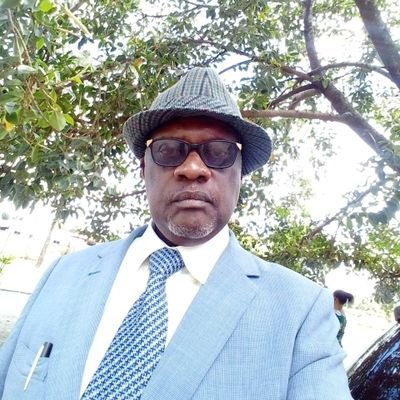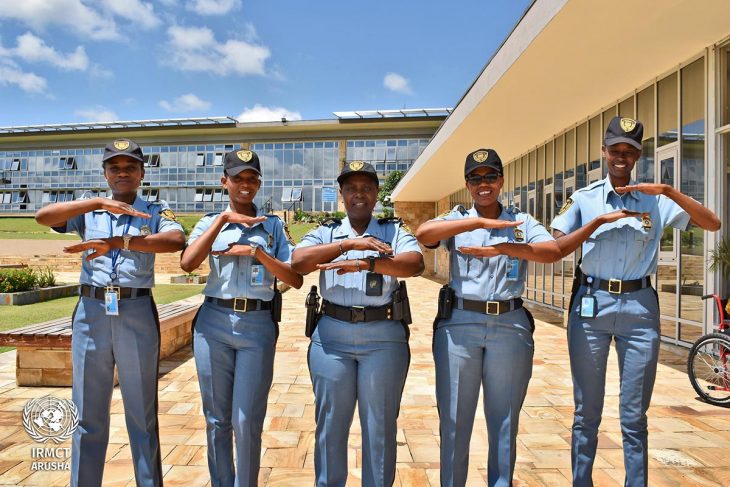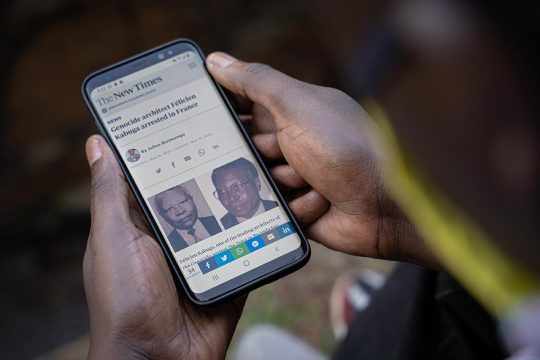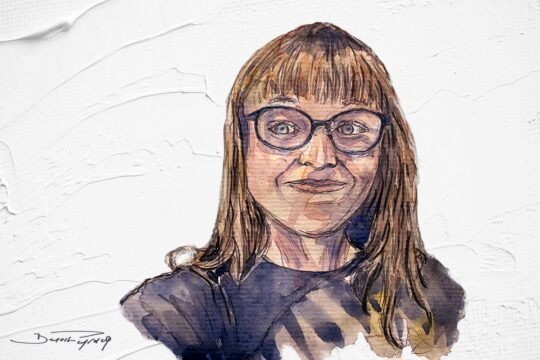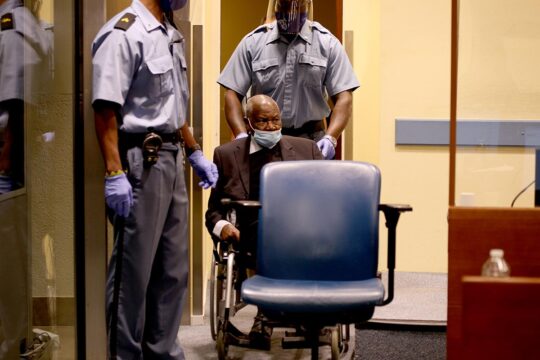Ten years have passed since the opening of the Arusha branch, in northern Tanzania, of the International Residual Mechanism for Criminal Tribunals (IRMCT) charged with carrying out the residual functions of the International Criminal Tribunals for Rwanda (ICTR) and former Yugoslavia (ICTY). Initially housed at the International Conference Centre in Arusha in offices rented by the ICTR, the "Mechanism" is now working in premises owned by the United Nations and built especially for it - at a cost of $8.7 million.
Located 20 kilometres west of Arusha, known as a starting point for safaris, the IRMCT should theoretically have tried Félicien Kabuga, the alleged financier of the 1994 Rwandan genocide, in its courtroom. But the former Rwandan businessman, arrested in France on May 16, 2020, is at least 87 and is being tried at the Mechanism’s other seat in The Hague (Netherlands) due to his fragile health. His trial, announced with great fanfare as the last major trial of the genocide, has quickly become as bland as it is invisible, especially in Arusha.
No audience, no access to the courtroom
A large television in the Arusha Mechanism's state-of-the-art media centre is showing the trial live, but no one is watching. In December 2022, Justice Info tried for two weeks running to follow the trial from this room, without anyone else coming in once. Sometimes we had to wait until a meeting of security staff ended in this press centre turned virtual public gallery for the trial. No reason was given as to why it was not possible to follow the trial in the public gallery of the real courtroom, where some witnesses were giving their testimony by teleconference.
The location, far from Rwanda and from the centre of Arusha, plus security hassles and bureaucracy seem to have combined to create a lack of interest in the trial.
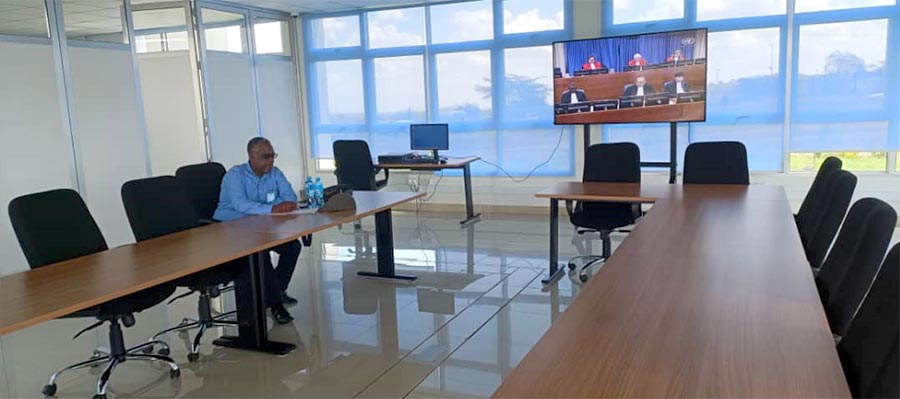
“The Kabuga trial remains significant and important for the world, particularly the Rwandan victims and survivors and the African continent,” said Keith Powell, the Mechanism's head of external relations, in an Email. “As proceedings are broadcast online, physical presence at The Hague premises cannot accurately reflect the continued interest in the case. In fact, the case has received regular media coverage, as well as generated continued interest from victims, law schools and other educational institutions.”
Powell could not, however, provide figures on the average number of people following the trial online, nor examples of such media coverage or scholarly publications.
A member of the communications department confided that a few lawyers and law students used to come and watch the trial in the beginning, but that they no longer come. This may be due to the many sessions behind closed doors. "The bureaucracy is blocking a lot of things here," said an IRMCT staff member in Arusha, who did not wish to be named. "Did you know that the communication people here, even to post a picture of a personality who has visited the Mechanism on the Twitter account, have to have the bosses’ approval? That sometimes comes only a long time later, when the news is already history."
On December 30, 2022, a UN General Assembly resolution did stress “the importance of ensuring continued public consciousness of the events leading to the establishment of the Mechanism”. But press conferences have long become rare. And the Mechanism’s silence, combined with its cost, has turned it into a "white elephant" -- a term used to describe certain expensive and useless investments.
"Staff morale affected"
The trial, which has been postponed several times due to the health of the accused, was supposed to resume on January 17, 2023, after a judicial recess. But it lost of one of the three trial chamber judges, Ugandan Elizabeth Nahamya, who died on January 5 in a hospital in The Hague. American reserve judge Margaret de Guzman replaced Nahamya. Another reserve judge has just been appointed, Portuguese Ivo Nelson de Caires Baptista Rosa.
Powell, the Mechanism spokesperson, lives in The Hague. He did not grant us an interview, but wished to point out the financial constraints weighing on the Mechanism. “Since January 2020, for example, the Mechanism has downsized substantially from 606 staff members to 342 staff by December 2023,” he wrote, without specifying the number of staff members remaining in each branch of the institution. In 2020, the Arusha branch alone had 200 staff and an annual budget of $40 million.
Budget and contract uncertainty have "affected staff morale and led to a higher rate of staff attrition,” according to the spokesman. "The budget for 2023 (both branches combined) is US$81,945,300, which represents a significant decrease," as the previous year's budget was $97,519,900.These cuts are expected to continue, as the General Assembly has said it "requests the Secretary-General [of the UN] to ensure that the Mechanism continues to take action in this regard”. The situation is the same for the never-ending trial in The Hague of Serb defendant Jovica Stanisic.
Video testimony for witnesses
In Arusha, the courtroom and its state-of-the-art equipment have only been used for two hearings: former Rwandan Planning Minister Augustin Ngirabatware’s request for review of his convictions, and a contempt of court case against people accused of witness tampering on his behalf. The courtroom was built to try three "big fish" that the ICTR never managed to get its hands on before it closed: former Rwandan Defence Minister Augustin Bizimana, ex-presidential guard commander Protais Mpiranya, and Félicien Kabuga. On May 22, 2020, the prosecutor's office confirmed – 20 years after his death -- that Bizimana died in August 2000. Mpiranya's death on October 5, 2006, was confirmed on May 12, 2022 -- 16 years later.
“The Arusha courtroom is currently being used for the Kabuga proceedings when necessary in addition to the Hague courtroom,” according to Powell. Indeed, witnesses from Kigali in particular are giving their testimony by video-conference from this room.
No precise account of the work done
As for the UN Detention Center in Arusha (UNDF), where a room with medical facilities was set up to receive Kabuga, "the UNDF will be decommissioned and returned to the Tanzanian government in February 2023," says Powell. This prison, which critics in Rwanda have called a "five-star hotel", is next to the Tanzanian jail in Arusha, where prisoners live in much worse conditions than in the UNDF.
Apart from the Kabuga trial, the Mechanism has a “continuous mandate, such as protecting thousands of witnesses across multiple countries, assisting national jurisdictions to support domestic proceedings aimed at closing the impunity gap, supporting the enforcement of sentences for convicted persons in various states in Africa and Europe, and preserving and managing the digital and physical archives of the Mechanism as well as the former Yugoslavia and Rwandan tribunals,” writes Powell, without providing details.
Finally, the last major misstep by this white elephant has still not been resolved: it sent eight acquitted and released persons to Niger, but Niger then said it didn’t want them and they are still blocked in Niamey. What was presented as a coup by the new clerk, Gambian Abubacarr Tambadou, quickly turned sour following an expulsion order by the Niger authorities shortly after their arrival.In a decision dated January 12, the Mechanism decided to pay them an additional ten thousand dollars, pending the hypothetical outcome of its efforts to resettle them. But the beneficiaries' bank accounts, opened when they arrived in Niamey with identity documents that were later withdrawn from them, cannot be used. The white elephant is still stuck in the mud.
KABUGA TRIAL RESUMES, AT A SLOWER PACE
The trial of Félicien Kabuga, alleged financier of the 1994 genocide in Rwanda, has been postponed several times following the deterioration of his health and the death of one of the judges. It was suspended on December 22 for the judicial vacation.
The defence argued on the basis of medical reports that "resuming the trial proceedings is incompatible with Mr. Kabuga's current state of health, regardless of whether his participation is in person or by way of video-conference link”. The prosecution suggested that Kabuga should follow his trial from prison, and if he cannot, "the trial proceed in his absence, with accommodations made outside of court to keep him abreast and involved”.
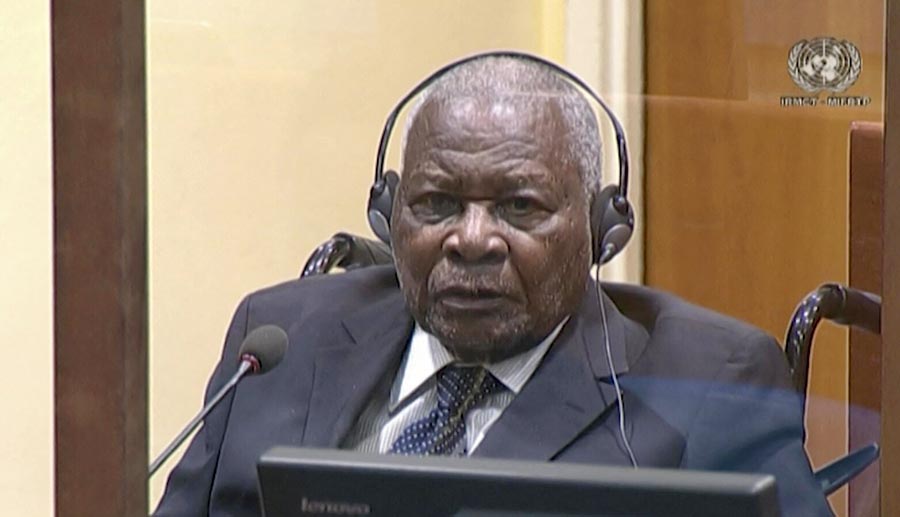
On February 13, the Chamber finally decided to resume the trial "in the interest of justice", while specifying that it "will sit two days a week for no more than 90 minutes a day with a 15-minute break”. Since the beginning of the trial, hearings have been held three days a week for two hours a day. The court said “the Trial Chamber does not find it appropriate to consider the suggested alternative modality of holding hearings without Mr. Kabuga's presence proposed by the Prosecution”. But it decided that he will be able to participate in the proceedings via video-conference.
When the trial reopened on Tuesday, the judges made no mention of the accused's presence, as usual. It was impossible to know whether he was watching his trial or not, until he appeared on the screen, following the hearing via video conference. When Kabuga fell asleep, the judges hurriedly suspended the proceedings, without saying anything about him.

